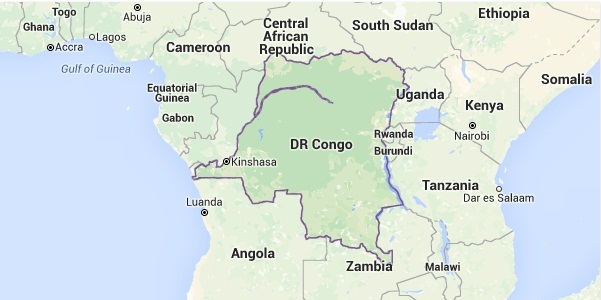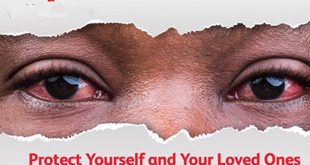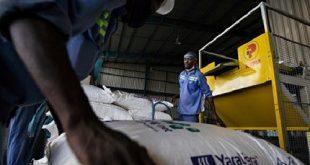
Kinshasa, DR Congo | AFP | Presidential elections that will shape the future of one of Africa’s biggest and most unstable countries were underway in the Democratic Republic of Congo on Sunday after a two-year delay.
Queues formed at polling stations, where observers reported early hitches, including with electronic voting machines whose introduction has stoked tension.
The vote gives the DRC the chance of its first peaceful transfer of power since it gained independence from Belgium in 1960.
But the threat of violence is great, given organisational problems and suspicion of President Joseph Kabila, who refused to quit in 2016 after his two-term limit expired.
The election’s credibility has been strained by repeated delays, risk of problems on polling day and accusations that the voting machines will yield a rigged result.
On election eve, talks aimed at averting violence after the vote broke down.
Opposition frontrunners Martin Fayulu and Felix Tshisekedi refused to sign a proposed code of conduct with Kabila’s preferred successor, Emmanuel Ramazani Shadary. They accused officials with the Independent National Election Commission (CENI) of thwarting changes to the text.
The UN, US and Europe have appealed for the elections to be free, fair and peaceful — a call echoed by the presidents of Angola, Botswana, Namibia, Zambia and the neighbouring Republic of Congo.
– Opposition chance? –
Kabila voted in the capital along with his family, shortly before Shadary and Fayulu.
“It’s a great day for me, it’s a great day for Congo,” Fayulu said. “It’s the end of dictatorship.”
“I feel liberated, freed,” said Victor Balibwa, a 53-year-old civil servant and one of the first voters to cast his ballot in Lubumbashi, the country’s mining capital in the southeast.
“I’m excited to vote, to be able to choose at last. It’s my first election,” an 18-year-old student named Rachel told AFP in the eastern city of Goma, an opposition stronghold.
An on-the-ground team of 41,000 election monitors set up by the powerful Catholic church said that 830 polling stations failed to open on schedule, in some cases because of “malfunctions” by voting machines.
In Lubumbashi, an observer for one of the candidates said, “there are five or six polling stations where the machines aren’t working. You have to wait for a technician.”
In Kinshasa, an elderly lady said she had trouble with the touch-screen voting.
“It’s very complicated. I pressed the button without really knowing who I voted for — I didn’t see my candidate’s number or face,” she complained.
Twenty-one candidates are running in the presidential election, taking place alongside legislative and municipal ballots.
The frontrunners include Kabila’s champion Shadary, a hardline former interior minister facing EU sanctions for a crackdown on protesters.
His biggest rivals are Fayulu, until recently a little-known legislator and former oil executive, and Tshisekedi, head of a veteran opposition party, the UDPS.
If the elections are “free and fair,” an opposition candidate will almost certainly win, according to Jason Stearns of the Congo Research Group, based at the Center on International Cooperation at New York University.
Opinion polls indicate Fayulu is clear favourite, garnering around 44 percent of voting intentions, followed by 24 percent for Tshisekedi and 18 percent for Shadary, he said.
However, “the potential for violence is extremely high,” Stearns warned.
Between 43 and 63 percent of respondents said they would not accept the results if Shadary is declared winner, he said.
And between 43 percent and 53 percent said they did not trust DRC’s courts to settle any election dispute fairly.
– Frail giant –
The DRC straddles 2.3 million square kilometres (920,000 square miles), making it about the size of continental western Europe.
It is rich in gold, uranium, copper, cobalt and other minerals, but little wealth trickles down to the poor.
In the last 22 years, the country has twice been a battleground for wars drawing in armies from around central and southern Africa.
That legacy endures in the jungles of eastern DRC, where militias have carried out hundreds of killings.
Insecurity and an ongoing Ebola epidemic in part of North Kivu province, and communal violence in Yumbi, in the southwest of the country, prompted the authorities to postpone the elections there until March.
Around 1.25 million people in a national electoral roll of around 40 million voters are affected.
In the city of Beni, activists set up several symbolic polling stations, using paper ballots, to protest the restriction.
Kabila said the vote in the troubled regions would take place “as soon as the situation allows it”.
There has been no explanation as to how the delayed vote will dovetail with an official outcome announced weeks before.
#UPDATE Millions of voters in the Democratic Republic of Congo are going to the polls in elections that will shape the future of their vast, troubled country, amid fears that violence could overshadow the ballot https://t.co/DKh9HoBA3q #DRCElections pic.twitter.com/7tvNugLrmk
— AFP news agency (@AFP) December 30, 2018
 The Independent Uganda: You get the Truth we Pay the Price
The Independent Uganda: You get the Truth we Pay the Price


